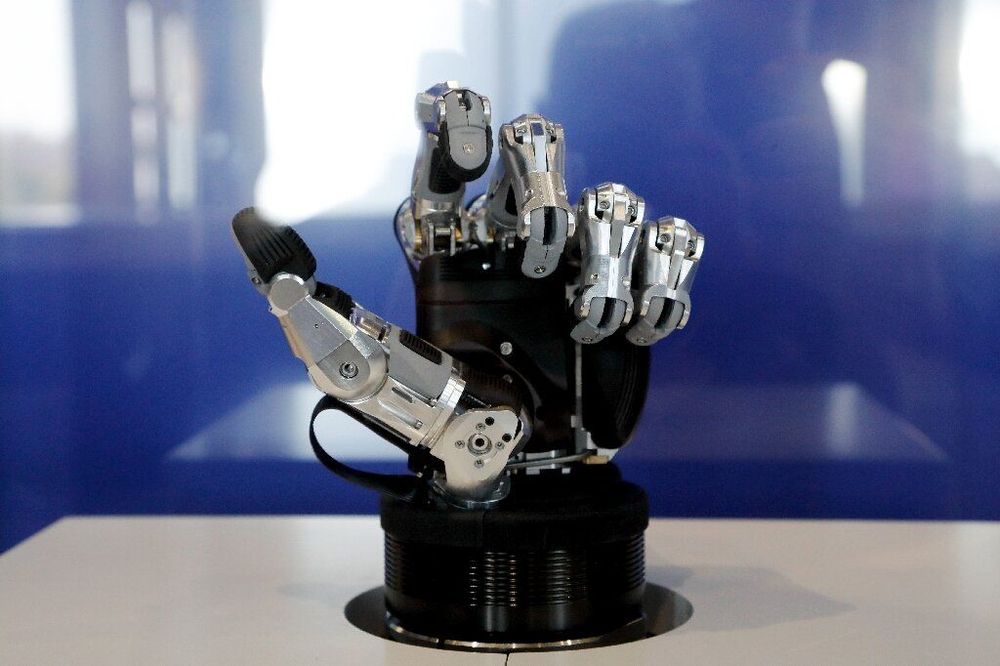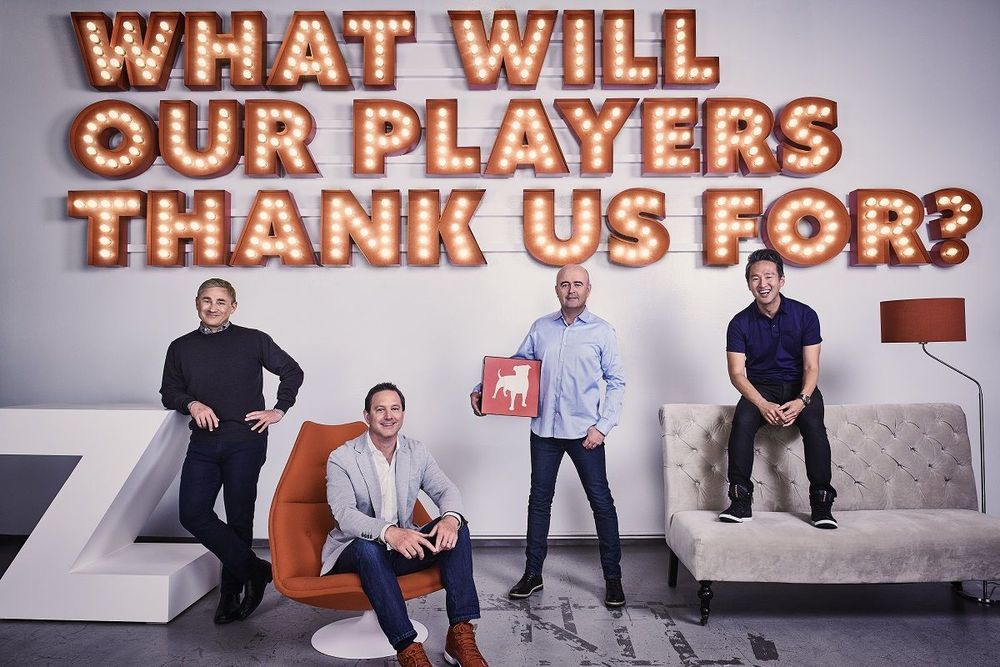GEDmatch’s revamped genetic privacy policy could set off legal battles that go all the way to the US Supreme Court.


GEDmatch’s revamped genetic privacy policy could set off legal battles that go all the way to the US Supreme Court.

Decades after Isaac Asimov first wrote his laws for robots, their ever-expanding role in our lives requires a radical new set of rules, legal and AI expert Frank Pasquale warned on Thursday.
The world has changed since sci-fi author Asimov in 1942 wrote his three rules for robots, including that they should never harm humans, and today’s omnipresent computers and algorithms demand up-to-date measures.
According to Pasquale, author of “The Black Box Society: The Secret Algorithms Behind Money and Information”, four new legally-inspired rules should be applied to robots and AI in our daily lives.

From the beginning of the year 2019, the sales of Boox eReaders slightly increase, and so do many other brands such as Kindle, Kobo and Sony. All of them suffered a rapid drop in sales in the previous year but now they are getting back. This may cause by the event that France prohibits students from using smartphones and tablets in schools.
Under the legislation passed in 2018, the French students as old as 15 were not allowed to bring their smartphones as well as tablets to schools from September. The law was originally noted in President Emmanuel Macron’s election campaign. Now, one semester has gone, actually what do folks think to this policy? Earlier than that, France endorsed a blanket smartphone ban for drivers, even those who park at the side of the road, so the further action to school is not that surprising. It seems that the French government is getting realized that the control of electronics use is significant to beat back the encroachment of digital technology in everyday life.

Airborne lead from recycled car batteries at the Exide plant in Vernon ended up in the baby teeth of children living nearby, a USC study shows.
“We found the higher the level of lead in the soil, the higher the amount of lead in baby teeth,” said first author Jill Johnston, an assistant professor of preventive medicine at the Keck School of Medicine of USC. “There’s no safe level of lead; it’s a potent neurotoxin. Our study provides insight into the legacy of the impact of industrial contamination on children.”
The Exide plant, located just southeast of downtown Los Angeles, recycled 11 million auto batteries per year and released 3,500 tons of lead until it closed in March 2015 as part of a legal settlement for hazardous waste violations.

The Estonian Ministry of Justice has officially asked Ott Velsberg, the country’s chief data officer, to design a “robot judge” to take care of a backlog of small claims court disputes, Wired reports.
The artificial intelligence-powered “judge” is supposed to analyze legal documents and other relevant information and come to a decision. Though a human judge will have an opportunity to revise those decisions, the project is a striking example of justice by artificial intelligence.

Concord, the fastest-growing contract management platform company, today announced accelerated market adoption of its cloud-based contract management platform and 2.5x revenue growth over the last 12 months. There are now 260,000 companies on the Concord Software as a Service (SaaS) platform. The Concord SaaS platform drives horizontal adoption by providing all key stakeholders collaborative access to the contract drafting, negotiation, signing and renewal processes within a single cloud-based platform.
Concord also announced a new pricing model. Unlike other contract management solutions that charge per seat regardless of usage, Concord pricing reflects the actual functionality needed by different stakeholders. Pricing is now based on Creator, Collaborator and Viewer usage options. For example, legal teams need Creator usage comprising full platform functionality including contract creation, editing and negotiation rights. Procurement, HR and sales teams typically only require Collaborator rights such as contract requests and the ability to select from previously approved form fields. Finance teams often only need Viewer rights to have visibility to track contract status, time to revenue and renewals. DevOps teams simply need API access to connect and integrate with other enterprise tools. By pricing and providing access according to need, the Concord platform is seamless and economical to adopt throughout an organization.
The cross-functional and external stakeholder proliferation capability is unique to Concord and a key factor to Concord’s platform adoption dramatically outpacing that of its competitors. For example, 64 new customers from vertical industries including e-commerce, logistics and healthcare have joined the Concord platform in the past two quarters. The horizontal approach Concord takes to the contracting process creates a powerful network effect which has resulted in 60,000 new users to the platform in the past two quarters.

Southwest Research Institute has developed a cyber security system to test for vulnerabilities in automated vehicles and other technologies that use GPS receivers for positioning, navigation and timing.
“This is a legal way for us to improve the cyber resilience of autonomous vehicles by demonstrating a transmission of spoofed or manipulated GPS signals to allow for analysis of system responses,” said Victor Murray, head of SwRI’s Cyber Physical Systems Group in the Intelligent Systems Division.
GPS spoofing is a malicious attack that broadcasts incorrect signals to deceive GPS receivers, while GPS manipulation modifies a real GPS signal. GPS satellites orbiting the Earth pinpoint physical locations of GPS receivers embedded in everything from smartphones to ground vehicles and aircraft. SwRI designed the new tool to meet United States federal regulations. Testing for GPS vulnerabilities in a mobile environment had previously been difficult because federal law prohibits over-the-air re-transmission of GPS signals without prior authorization.
A documentary by Eric Merola
Burzynski: The Cancer Cure Cover-up is the story of a pioneering biochemist who discovered a unique and proprietary method of successfully treating most cancers. This documentary takes the audience on a near 50-year journey both Dr. Burzynski and his patients have been enduring in order to obtain FDA-approved clinical trials of Antineoplastons. Defying the face of skepticism, legal attacks from state and federal agencies, and a powerful propaganda campaign to stop Burzynski – this doctor and his patients are still going strong.
Due to the continued failed efforts of state and federal agencies in their attempts to stop Burzynski from continuing to treat patients and expand his research, special interest groups have since launched a relentless propaganda campaign against Dr. Burzynski, and his supporters and patients, in hopes that this game-changing innovation never reach the open market.
The primary reason that the cancer industry and its regulatory agencies fear the approval of Antineoplastons is purely economical.
If Antineoplastons were FDA-approved for just one cancer type this would mean that anyone of any age diagnosed with any type of cancer could legally insist their oncologist provide them with Antineoplastons “off-label”. Given the gentle and nontoxic nature of these medications, most people would begin to opt for Antineoplastons as a first line of defence against their cancer instead of first choosing life-threatening yet profitable chemotherapy and radiation.
Burzynski: The Cancer Cure Cover-up investigates this hidden cancer treatment and the decades of failed lawsuits the US government and FDA have pursued in order to try to silence him.
